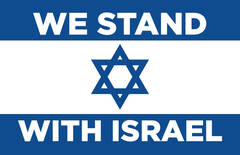- About
- Blogs
- Community
- Events
- Learn
-
Photo Gallery
- Rabbi Weill's 60th Birthday
- Purim Shpiel 2025 Pics
- Purim 2025 Pics
- HH 5785 / 2024 Pics
- Magen David Odam Ambulance Dedication Photos (2024)
-
PAST PURIM SPIELS
- Purim Shpiel 2024 - Ghosts of Purim
- Purim Spiel 2022: Shushan Incorporated (26 photos)
- Purim Spiel 2019: Young Esther Stein (12 photos)
- Purim Spiel 2018: Saving Mordecai (Rehearsal) (81 photos)
- Purim Shpiel 2017: Bye Bye Haman (189 photos)
- Purim Shpiel 2017: Bye Bye Haman (Rehearsal)
- Purim Shpiel 2016: The Queen and I (Rehearsal) (124 photos)
- Purim Shpiel 2015: Li'l Orphan Esther (87 photos)
- Purim Shpiel 2015: Li'l Orphan Esther (Rehearsal) (18 photos)
- Purim Shpiel 2014: PurimTime (70 photos)
- Purim Shpiel 2013: The Book of Esther (27 photos)
- Purim Shpiel 2012: The Trial of Haman (3 photos)
- Purim Shpiel 2011: The Megillah – A Shlock Opera (16 photos)
- Purim Shpiel 2010: The Megillah – A Thrilla' (14 photos)
- Folk and Rock Revue June 2019 (18 photos)
- Sisterhood 2018 Luncheon and Fashion Show (24 photos)
- Sisterhood Ron Balson Author Luncheon (19 photos)
- Sisterhood Chanukah Luncheon (9 photos)
- Kristallnacht 75th Anniversary (13 photos)
- Martin & Henrietta Fox Torah Project (23 photos)
- Sukkah Decorating 2015 (4 photos)
- Resources
- Support
- Worship
Joseph, Chanukah, and the Universal Declaration of Human Rights
12/15/2020 08:33:56 PM
Rabbi Weill
| Author | |
| Date Added | |
| Automatically create summary | |
| Summary |
Whereas December 10 marked the seventy-second anniversary of the signing of the Universal Declaration of Human Rights;
and whereas this Shabbat Chanukah is an internationally recognized Human Rights Shabbat;
and whereas on this Shabbat we read Parshat Va’Yeshev, wherein Joseph, son of Rachel and Jacob, is sold into slavery by his brothers;
and whereas Joseph’s brothers’ treatment of him violated the spirit of the Universal Declaration of Human Rights, as Article 1 of that document states:
Human beings should act towards one another “in a spirit of brotherhood” (Article 1).
And whereas when Joseph’s brothers stripped him of his ornamented tunic, which was his lawful property, they deprived him of his fundamental human rights, as Article 2 in the Universal Declaration of Human Rights states:
No one shall be arbitrarily deprived of his property.
And whereas when Joseph was thrown into a pit from which he could not escape, he was further deprived of his fundamental human rights, as Article 3 of the Declaration states:
Everyone has the right to life, liberty and security of person.
And whereas within said pit, ain bo mayim, there was no water, Joseph was further deprived of his fundamental human rights, as Article 5 of the Declaration states:
No one shall be subjected to torture or to cruel, inhuman or degrading treatment or punishment.
And whereas when Joseph’s brother’s sold him into slavery, Joseph was deprived of his fundamental human rights, as Article 4 of the Declaration states:
No one shall be held in slavery or servitude; slavery and the slave trade shall be prohibited in all their forms.
And whereas as slave-traders took Joseph against his will to a foreign land, a land not his own, Joseph was further deprived of his fundamental human rights, as Article 15, paragraph 2 of the Declaration states:
Everyone has the right to a nationality. No one shall be arbitrarily deprived of his nationality.
And whereas Joseph’s employer, the wife of Potiphar, sought repeatedly to compel Joseph to engage in sexual relations against his will, Joseph was deprived of his fundamental human rights, as the Article 23, paragraph 1 of the Declaration states:
Everyone has the right to … free choice of employment [and to] favourable conditions of work.
And whereas Joseph was thereafter imprisoned without trial, Joseph was further deprived of his fundamental human rights, as the Article 10 of the Declaration states:
Everyone is entitled in full equality to a fair and public hearing by an independent and impartial tribunal, in the determination of his rights and obligations and of any criminal charge against him.
And whereas many centuries later, the land of Palestine was occupied by a foreign power, depriving the Jewish native population of political autonomy, the Jewish people were deprived of their fundamental human rights, as Article 23, paragraph 3 of the Universal Declaration of Human Rights states:
The will of the people shall be the basis of the authority of government; this will shall be expressed in periodic and genuine elections.
And whereas those foreign rulers forbade the Jews from studying the Torah, their primary sacred text, and forbade the Jews from offering sacrifices at the Temple, their most sacred site, which the Seleucid Greeks purposely defiled, the Jews were further deprived of their fundamental human rights, as Article 18 of the Declaration states:
Everyone has the right to freedom of thought, conscience and religion; this right includes freedom … to manifest his religion or belief in teaching, practice, worship and observance.
And whereas Jews of the twenty-first century in the common era – thousands of years after the aforementioned situations – continue to study the Torah;
and whereas Torah and the entire subsequent Jewish tradition insist that the children of Israel (that is, the Jewish people) recognize the inherent worth of every human being, as it is written in Torah’s first book, Genesis 1:27, concerning the first human being:
B’tzelem Elohim bara oto. In the image of God was that being created.
And whereas the Jewish historical experience has been marred by persecutions;
and whereas the Jewish people in their homeland, the nation-state of Israel, as well as in their diaspora of the United States and elsewhere, now enjoy autonomy and security, which they did not always possess;
and whereas on Chanukah, the Festival of Lights, the Jewish people are commanded to bring light to the world;
Let it hereby be resolved on this Human Right Shabbat/Shabbat Chanukah/ Parshat Va’Yeshev that:
The Jewish people will recommit themselves to the pursuit of human rights for all human beings;
the Jewish people in the state of Israel will continually strive to achieve a just and humane balance between their own security needs and the unqualified rights of non-Jews to enjoy the rights and safeguards guaranteed by the Universal Declaration of Human Rights;
the Jewish people worldwide will recommit themselves to protect the rights of immigrants, for Torah demands more than thirty times that they honor and protect the stranger, as it is written in the Torah’s final book, Deuteronomy 10:19:
Ve-ahavtem et hager ki gerim hayitem be-eretz mitzrayim. You shall love the stranger for you were strangers in the land of Egypt (Deuteronomy 10:19).
The Jewish people will use their resources of time, money and influence to pursue the human rights of all people, particularly rededicating themselves on this Shabbat, on this Chanukah, the holiday of dedication, to this singular and holy purpose.
It is hereby resolved. V’nomar, and we say, Amen.
Rabbi Weill's sermon, delivered on Human Rights Shabbat, December 12. 2020
Wed, November 5 2025
14 Cheshvan 5786
LOOKING FOR WAYS TO HELP ISRAEL? CLICK HERE
ALSO:
Brothers For Life – Injured soldiers helping injured soldiers
__________________________
"Unveiling Death"
Podcast by Rabbi Weill
![]() CHECK OUT THE LATEST EPISODE - Kaddish Without God: Death & Mourning in Humanistic Judaism: A Conversation with Rabbi Adam Chalom
CHECK OUT THE LATEST EPISODE - Kaddish Without God: Death & Mourning in Humanistic Judaism: A Conversation with Rabbi Adam Chalom
__________________________

Friday, November 7th
7:30 PM
In-Person & Zoom
__________________________
Our Worship Mishpachah
___________________
SHIRENU/OUR SONG
Join EHNTJC's Congregational Choir! We will sing at services and other special events. Led by Cantor Daniel Gale.
Please contact bill@ehnt.org if you are interested in joining.
__________________________










 Like Us On Facebook
Like Us On Facebook